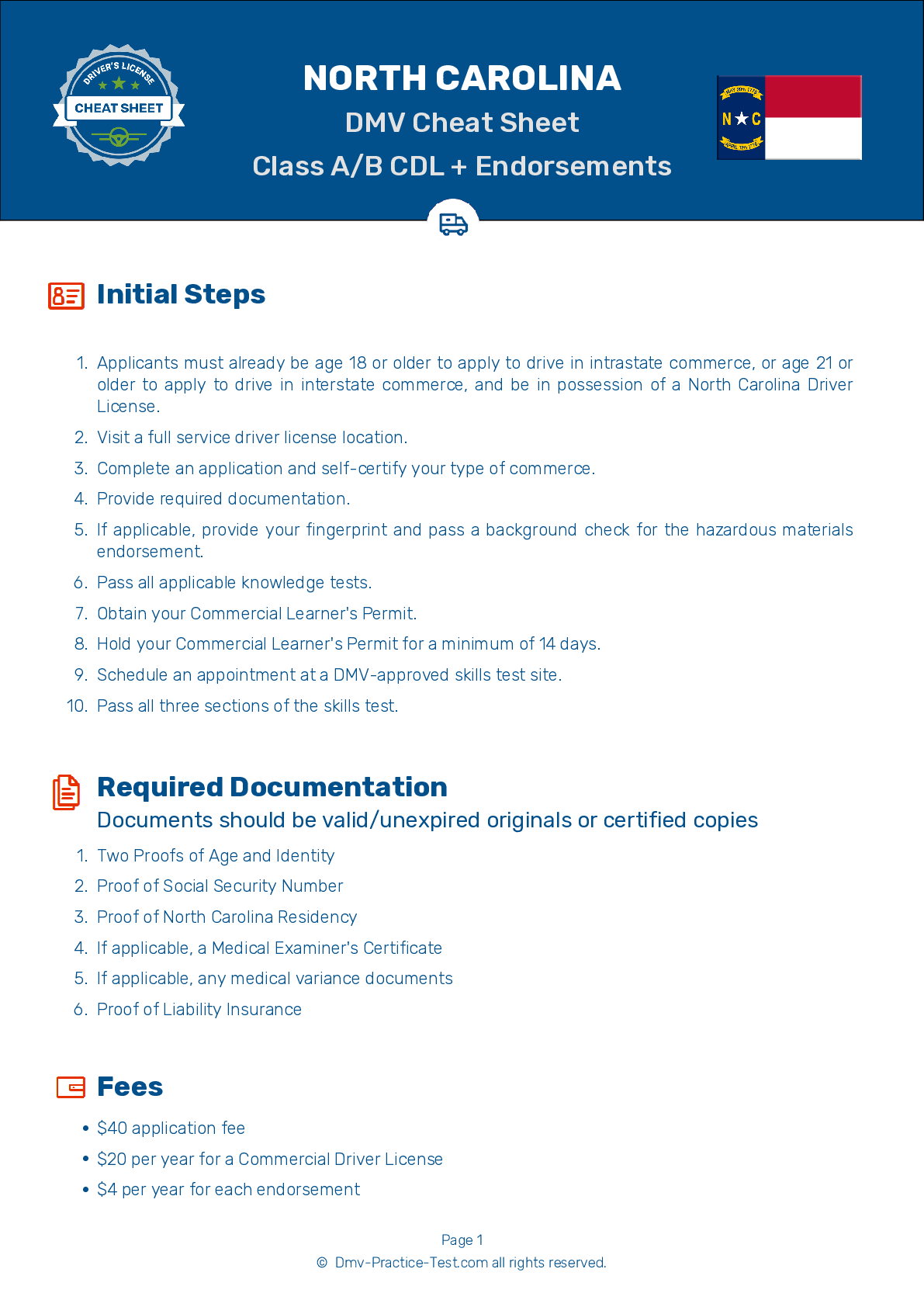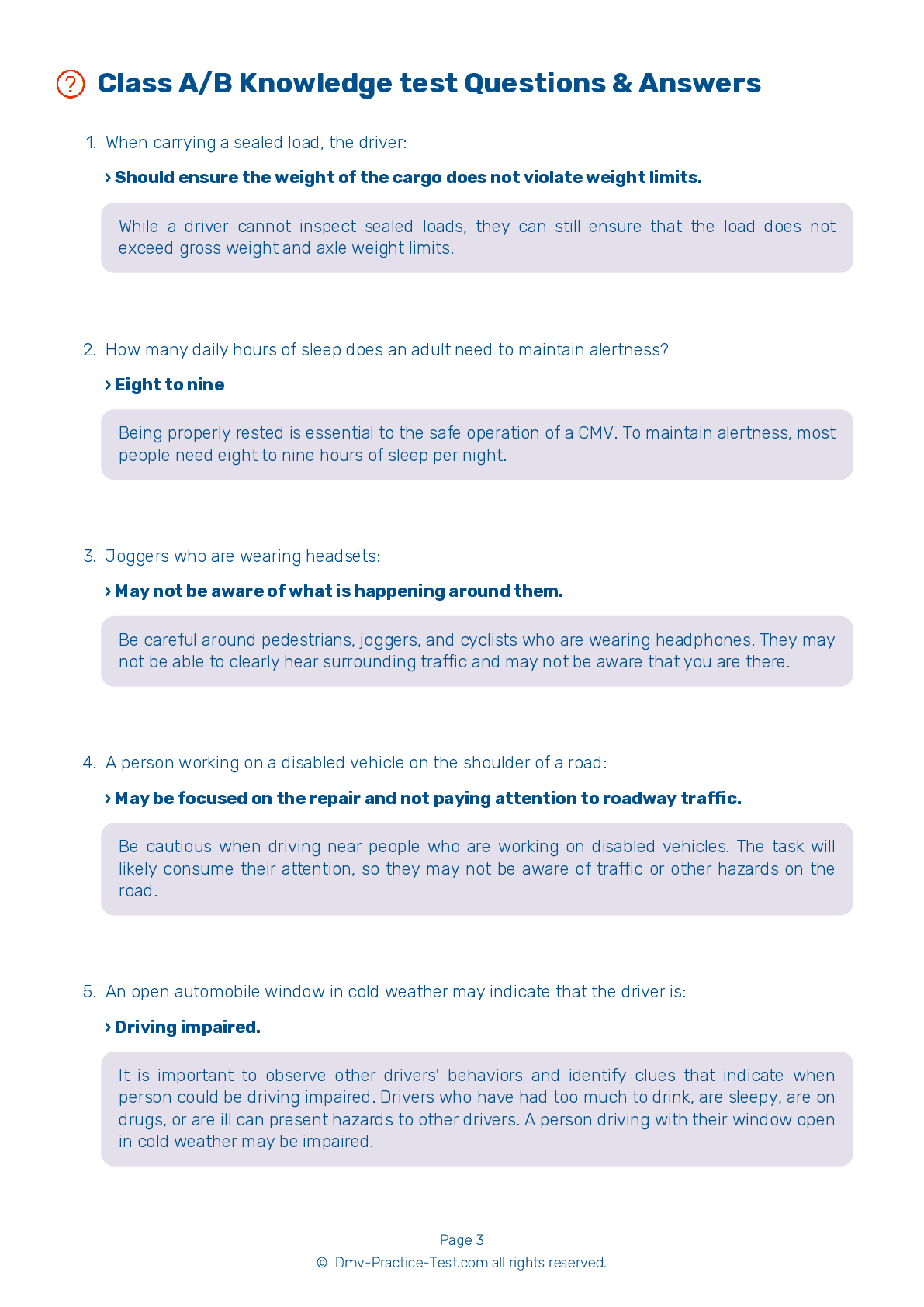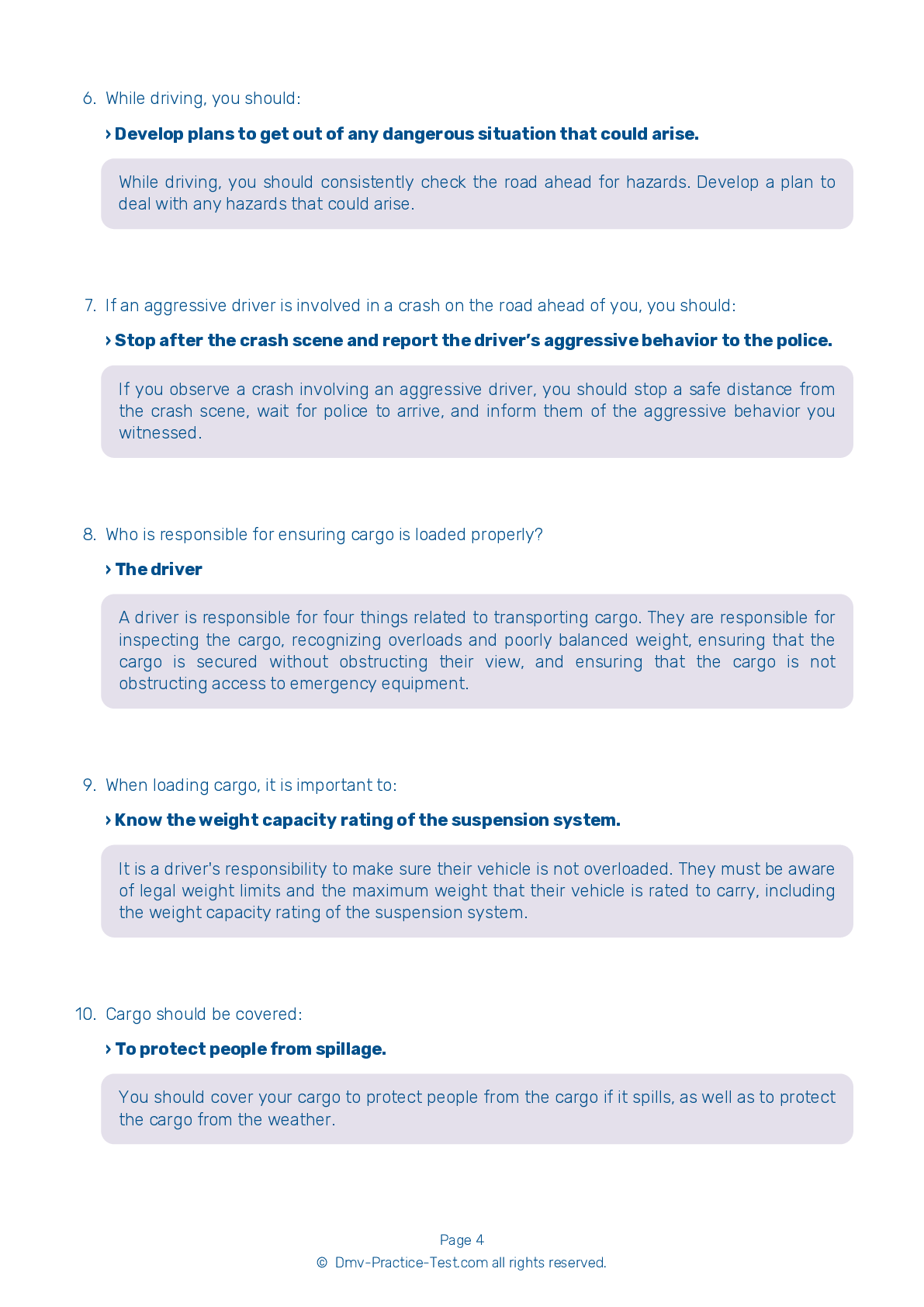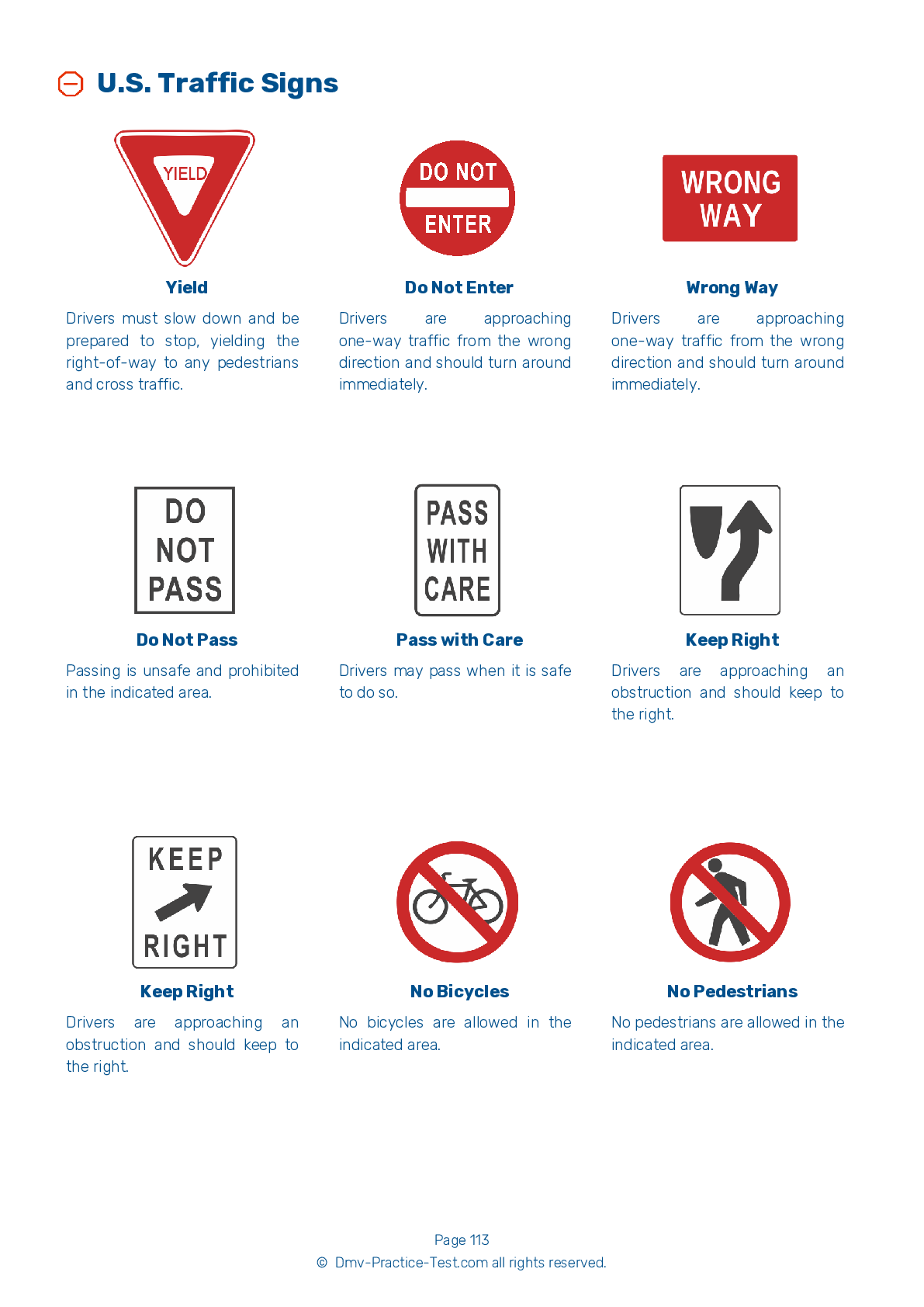Combination Vehicles Practice Test | North Carolina 2026 #1 Page 3 of 4
Train for FREE online with our North Carolina CDL combination vehicle test. The official exam test consists of several obligatory parts, with all of them checking your knowledge of different blocks of road rules. If you need to obtain a NC combination license in 2026, practice as much as possible. Free sample tests published on our website will help you check and improve your knowledge and boost your grades. Please bear in mind that DMV requirements for issuing a combination license may vary from state to state.
13 . To help prevent rollovers, you should:
To lower the risk of a rollover, load your cargo as closely to the ground as possible. To further reduce this risk, take curves and corners slowly.
14 . Simply changing lanes can cause:
Due to the "crack-the-whip" effect caused by rearward amplification, changing lanes too quickly in a combination vehicle can result in a rollover.
15 . If a trailer's spring brakes do not release when you push the tractor air supply control, you should:
It is important that all of your vehicle's equipment is in proper working condition before you begin a trip. If a trailer's spring brakes do not release when you push in the tractor air supply control, you should make sure the air line connections are properly attached and sealed.
16 . The service air line is often controlled by the foot brake and is attached to the ____ valves.
The service air line carries air and is controlled by either the foot brake or trailer hand brake. The service air line is attached to relay valves, which allow the trailer brakes to be applied quickly.
17 . If unsure if a trailer is equipped with ABS, you can:
Trailers and converter dollies built on or after March 1, 1998 are required to have Anti-Lock Braking Systems (ABS). This will be indicated by the presence of a yellow malfunction lamp. You can determine if older trailers have ABS by checking under the trailers for ECU and wheel speed sensor wires coming from the back of the brakes.
18 . An Anti-Lock Braking System (ABS):
The function of an Anti-Lock Braking System (ABS) is to prevent a vehicle's wheels from locking up during hard braking.
See the exact questions that will be on the 2026 North Carolina DMV exam.
99.2% of people who use the cheat sheet pass the FIRST TIME
Lillian MCcranie explains how our CDL study guide was helpful in passing the exam and recommends it to everyone.
Cameron tells us how he purchased the CDL exam, and found it to be a useful tool which helped him pass the exam and find a job.



